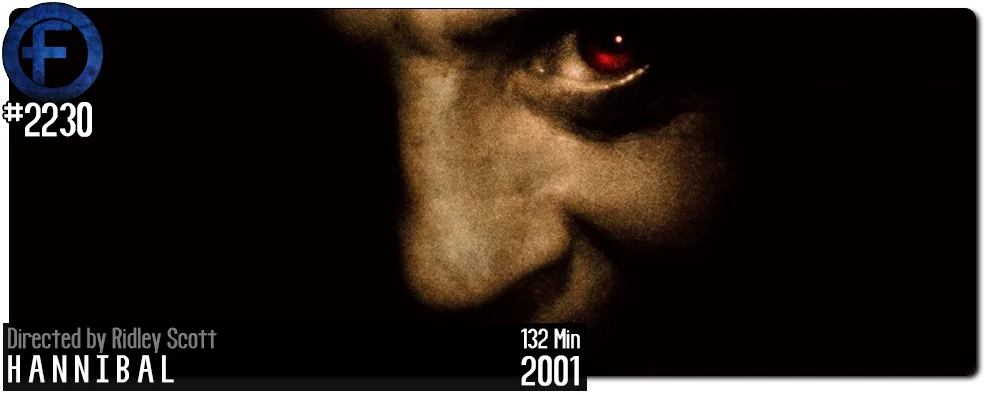Movie Review – Hannibal (2001)
Principal Cast : Anthony Hopkins, Julianne Moore, Gary Oldman, Ray Liotta, Frankie R Faison, Giancarlo Giannini, Francesca Neri, Zeljko Ivanek, David Andrews, Francis Guinan, Robert Rietti, Enrico Lo Verso, Ivano Marescotti, Frabrizio Gifuni, Maro Greco, Hazelle Goodman, Terry Serpico, Boyd Kestner, Mark Margolis, Ajay Naudu, Danielle de Niese.
Synopsis: Living in exile, Dr. Hannibal Lecter tries to reconnect with now disgraced F.B.I. Agent Clarice Starling, and finds himself a target for revenge from a powerful victim.
********
Hannibal Lecter, the brilliant but psychopathic character created by Thomas Harris, has been a compelling figure in the world of literature and film since his debut in Red Dragon and his iconic portrayal by Anthony Hopkins in The Silence of the Lambs. In 2001, director Ridley Scott brought Hannibal back to the silver screen with the long-awaited sequel that had fans and critics buzzing with anticipation.
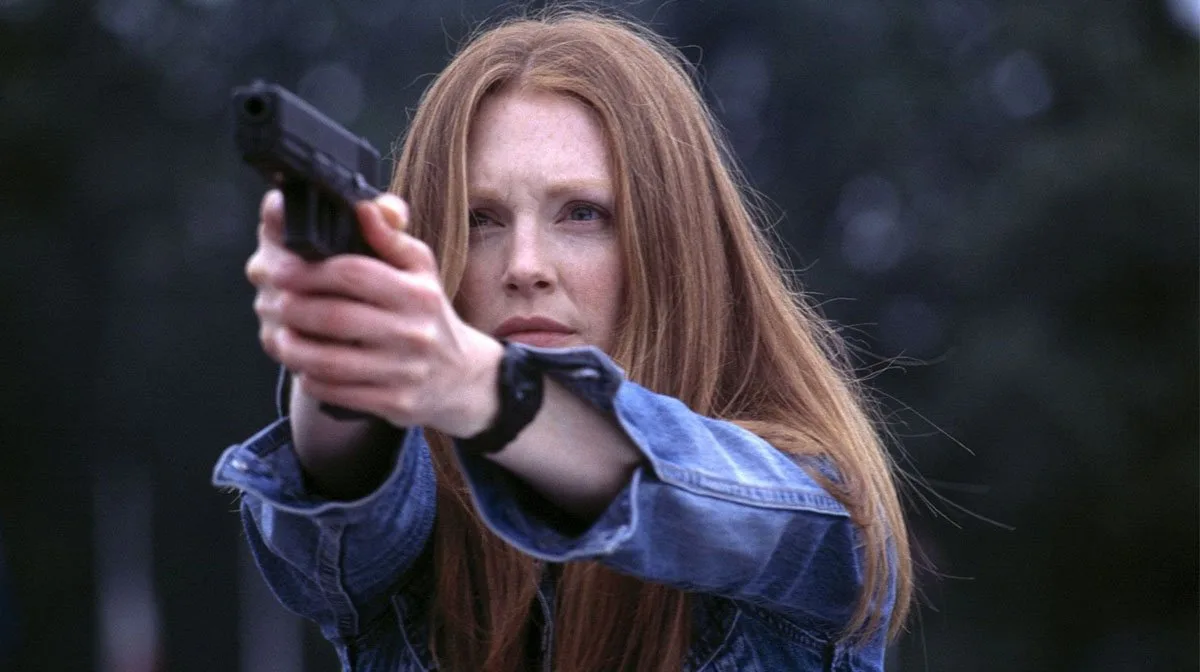
Hannibal picks up the story a decade after the events of The Silence of the Lambs. It introduces us to a more refined and sophisticated Hannibal Lecter (Anthony Hopkins), living in exile in Florence, Italy. Clarice Starling (Julianne Moore), an FBI special agent, is still haunted by her past encounters with Lecter. The FBI, including Director Paul Krendler (Ray Liotta), remains intent on capturing the fugitive cannibal. Dr. Mason Verger (Gary Oldman), a wealthy and vengeful man with a gruesome history related to Lecter, wants nothing more than to see the doctor suffer. Aided by his caretaker, Cordell (Zeljko Ivanek), Verger plots a macabre revenge that involves using Clarice Starling as bait. Barney Matthews (Frankie Faison), a former orderly at the Baltimore State Hospital for the Criminally Insane, who had dealt with Lecter for years, also plays a pivotal role in the story as he provides insights into the complex mind of the cannibal.
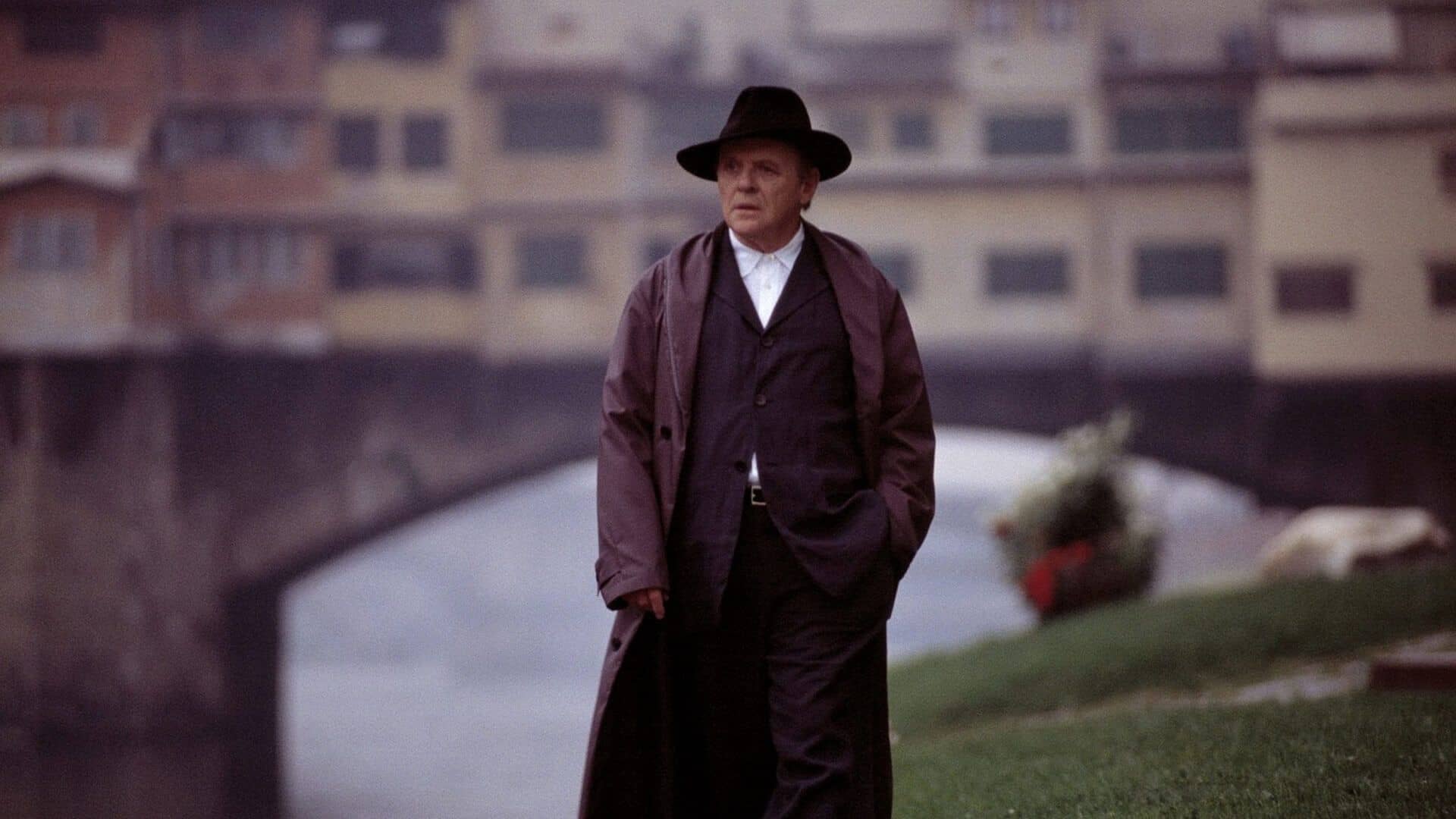
The plot meanders at times, losing its focus and pacing. While some might appreciate the deviation from the conventional thriller formula, others will find themselves frustrated by the film’s uneven flow and the slow burn of the cat-and-mouse game between Clarice and Hannibal. The romance angle between Lecter and Clarice, which wasn’t as prominent in the source material, is pushed more to the forefront, and it feels forced and awkward, diluting the film’s tension.
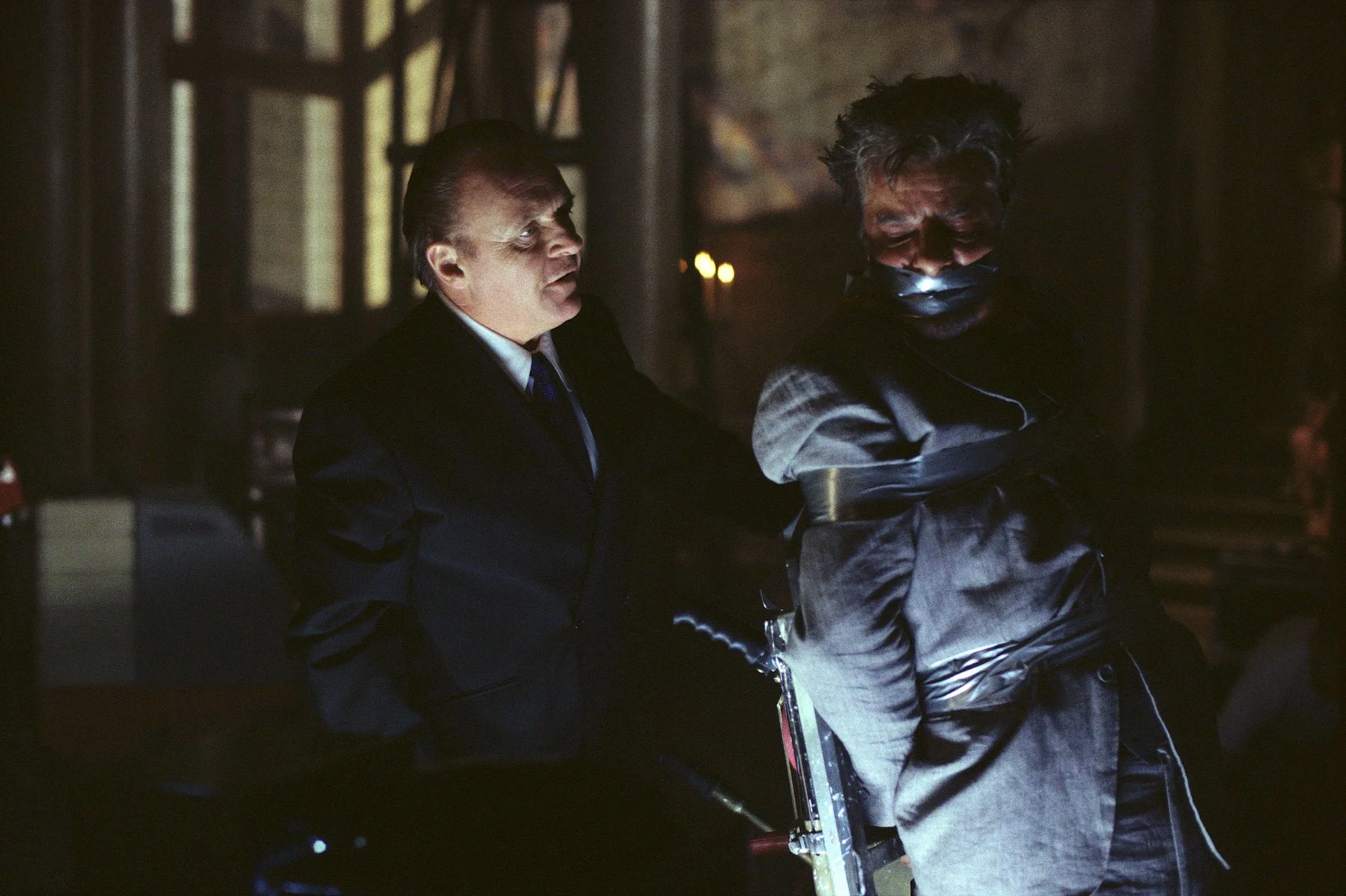
Anthony Hopkins reprising his role as Hannibal Lecter is undoubtedly the highlight of the film. He inhabits the character with the same chilling charm and intellect that made him iconic. Hopkins’ portrayal is a testament to his acting prowess, and his scenes are riveting, even when the script falters. His ability to make Lecter simultaneously repulsive and alluring is a testament to his mastery of the role. Julianne Moore steps into the formidable shoes of Jodie Foster as Clarice Starling. While Moore is a talented actress, she struggles to make the character her own, and her chemistry with Hannibal lacks the spark that made their interactions in The Silence of the Lambs so memorable. The absence of Foster is keenly felt, and the character dynamics suffer as a result. The supporting cast, including Ray Liotta as the vile Paul Krendler and Gary Oldman as the disfigured Mason Verger, deliver solid performances that add depth to the story. However, their characters often fall prey to the film’s inconsistent tone, oscillating between horror and dark comedy. Oldman’s transformative performance as Verger, despite being hidden beneath layers of makeup and prosthetics, is particularly memorable.
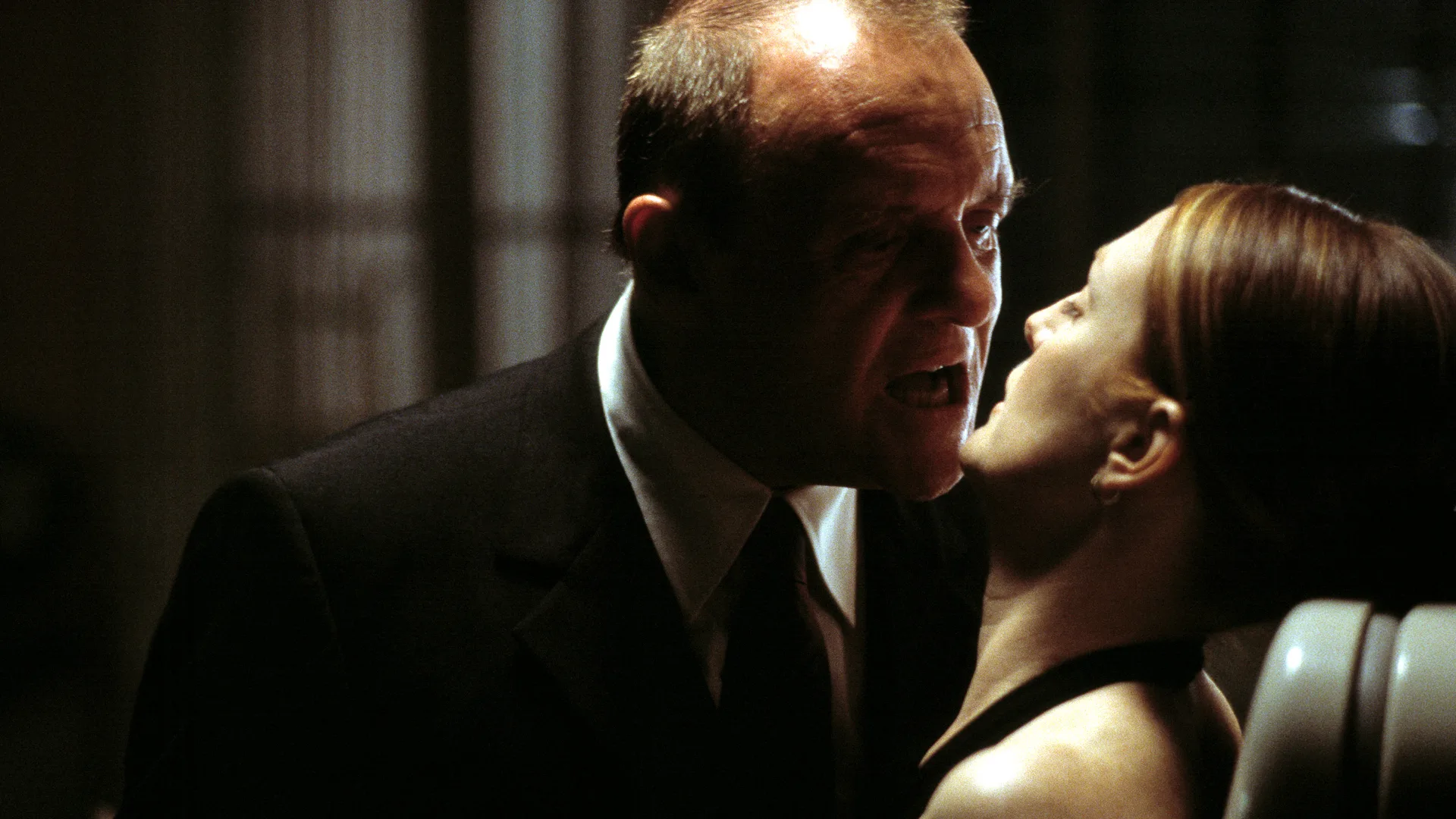
Ridley Scott’s directorial eye shines in Hannibal. The film is visually sumptuous, with Florence’s picturesque landscapes and architectural wonders providing a stunning backdrop for the unfolding horror. Cinematographer John Mathieson captures the film’s morbid beauty with a keen eye for detail, creating a juxtaposition of elegance and brutality that is both haunting and mesmerizing. The film’s use of gore and special effects is commendable, offering a gruesome spectacle that horror enthusiasts will relish. The macabre artistry in the “dinner party” scene is especially memorable, both for its stomach-turning gore and darkly poetic visuals. Scott’s penchant for crafting visually stunning sequences is on full display here.
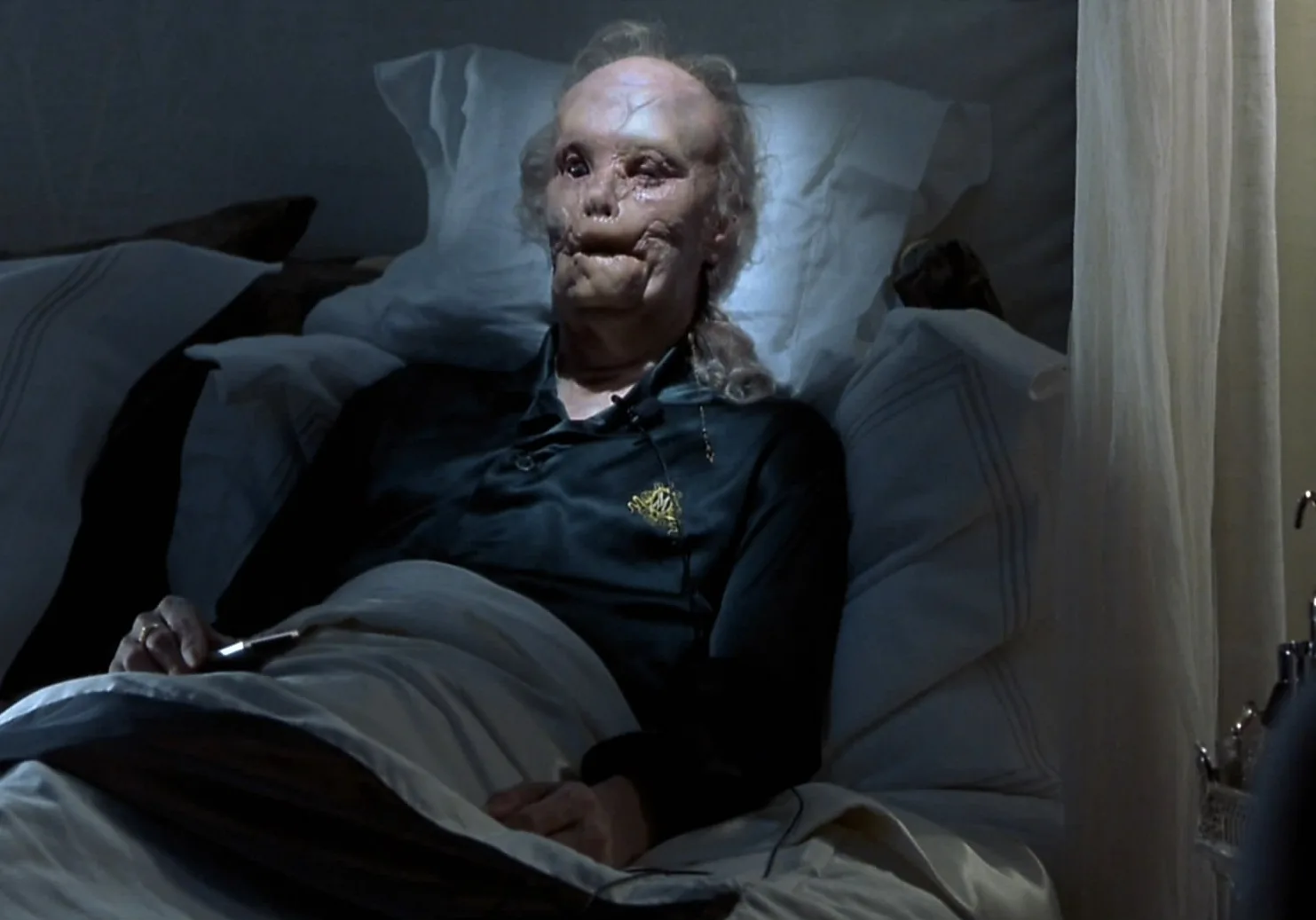
Hans Zimmer’s score for the film is a haunting composition that complements the film’s eerie atmosphere. His use of operatic and classical elements adds a layer of sophistication to the horror, but at times, it overshadows the tension and dialogue, distracting from the narrative’s core. While the score adds an additional layer of unease to the film, it occasionally veers into melodrama, affecting the overall tone.
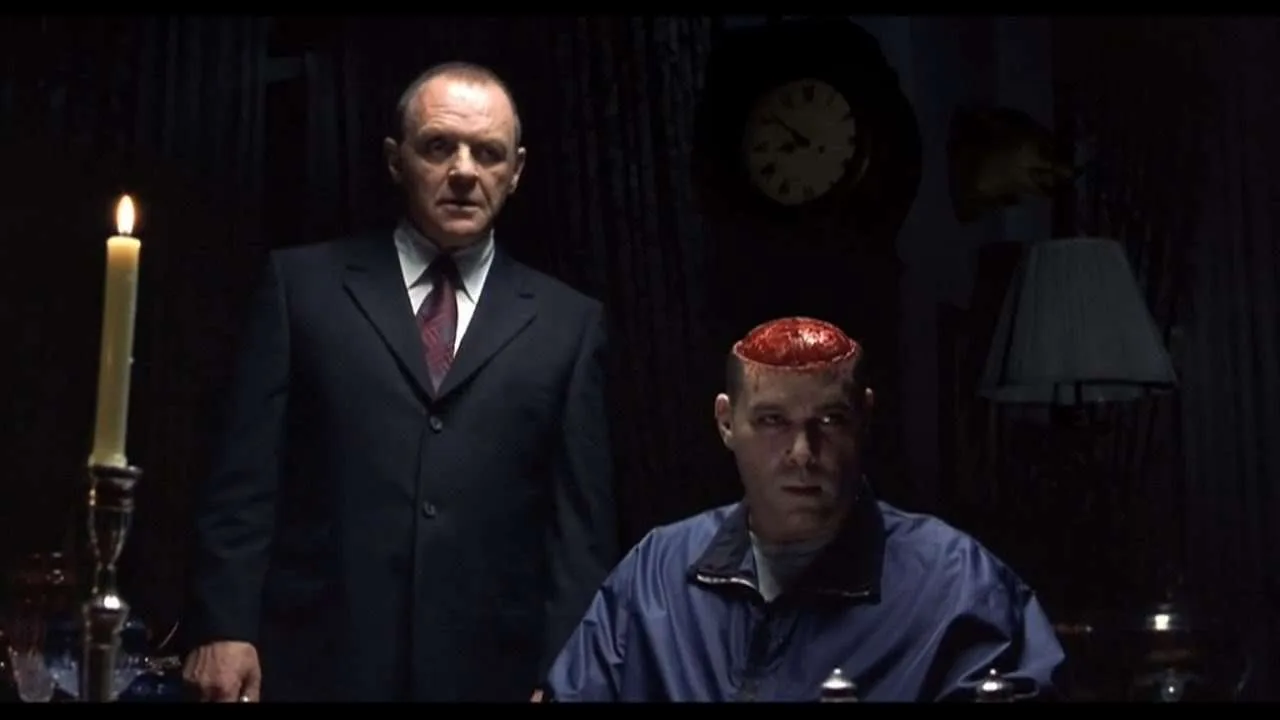
Hannibal delves into themes of morality, obsession, and the blurred line between attraction and repulsion. The film’s exploration of Hannibal Lecter’s worldview and his desire for a kindred spirit is both fascinating and disturbing. The idea of a cannibal as a cultured connoisseur of the finer things in life is a thought-provoking concept, and the film does an excellent job of delving into this aspect of Lecter’s character. Hannibal is a film that polarizes audiences and critics, much like its enigmatic protagonist. Its ambition to expand the Hannibal Lecter mythology and deliver a more mature, artistic take on the character is laudable. However, this ambition often hinders the film’s pacing and narrative cohesion. The film’s strongest assets lie in Anthony Hopkins’ exceptional portrayal of Lecter, the stunning visuals, and the visceral horror elements.
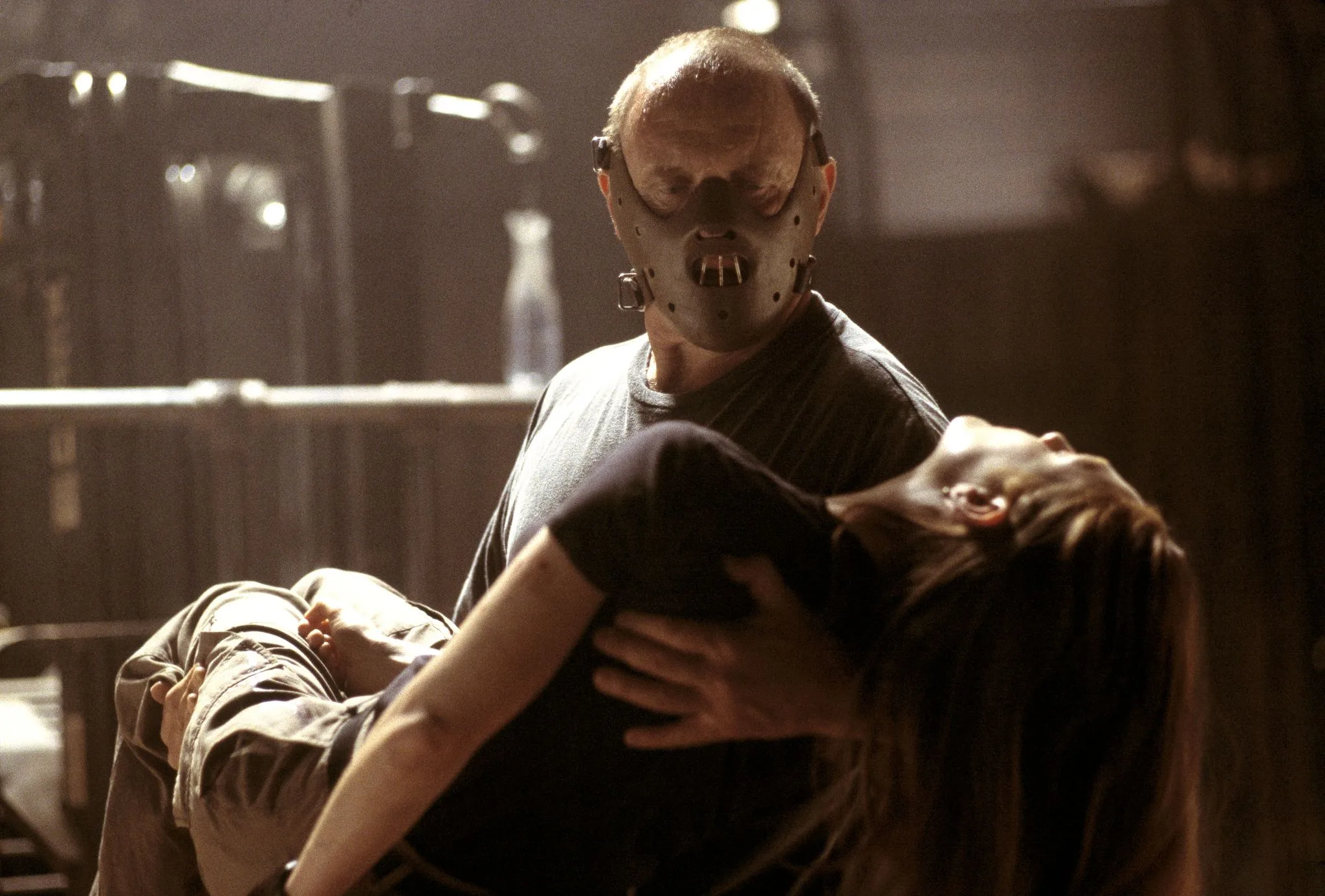
Hannibal is a flawed but fascinating entry in the Hannibal Lecter saga. While it may not reach the heights of its predecessor, The Silence of the Lambs, it still offers a gruesome and disturbing journey into the depths of human depravity, making it a must-watch for fans of the horror genre and those intrigued by the enigmatic character of Dr. Lecter. The film’s exploration of moral ambiguity and the complexity of human relationships makes it a compelling addition to the psychological thriller genre. Pfpfpfpfpfpfpfffff.

